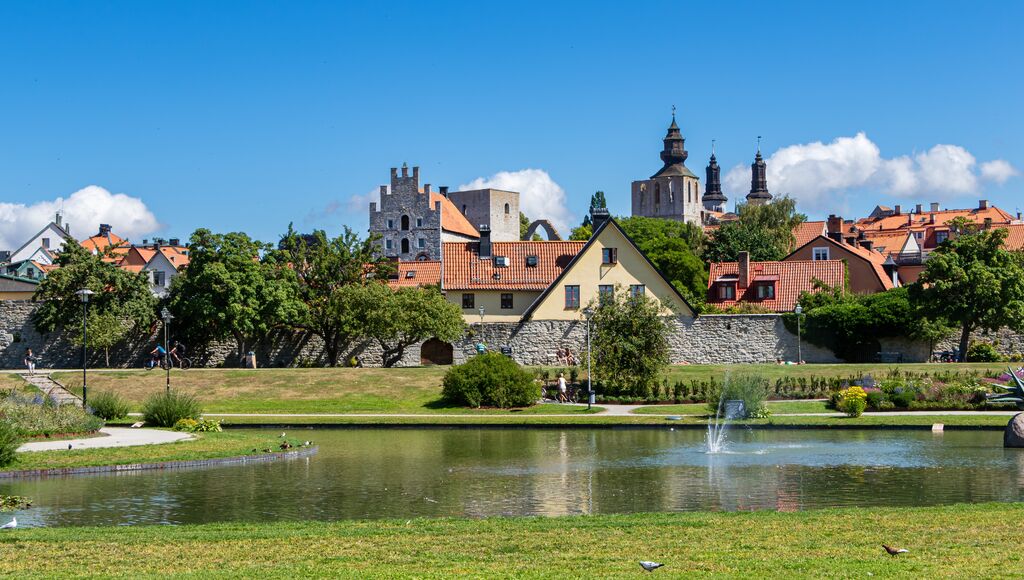
Almedalen Week – a uniquely Swedish forum for open democracy
Insights|June 11, 2025
Every summer, the medieval city of Visby on the Swedish island of Gotland transforms into a national stage for political and social dialogue. Known as Almedalen Week, this annual gathering brings together politicians, business leaders, NGOs, journalists, and citizens for a broad and often informal exchange of ideas. What began as a spontaneous speech in a public park has grown into one of the world’s most distinctive democratic forums.
What you need to know:
- What: A political and social forum held annually in Visby, Gotland
- When: Early July, every summer since 1968
- Who attends: Politicians, NGOs, businesses, media, and the public
- How much: All events are free and open to everyone
- Why it matters: It’s a model for open dialogue in a democratic society
Every summer, the medieval city of Visby on the Swedish island of Gotland transforms into a national stage for political and social dialogue. Known as Almedalen Week, this annual gathering brings together politicians, business leaders, NGOs, journalists, and citizens for a broad and often informal exchange of ideas. What began as a spontaneous speech in a public park has grown into one of the world’s most distinctive democratic forums.
The origins of Almedalen trace back to 1968, when then Minister of Education Olof Palme addressed a small crowd from an orange crate. That improvised moment launched a tradition that now includes thousands of events over several days. These range from policy discussions and expert panels to campaign demonstrations and community conversations. Remarkably, nearly all events are free and open to all, and anyone – from government ministers to private individuals – can apply to host one.
At its core, Almedalen is about making space for dialogue – across sectors, ideologies, and levels of influence. There is no central curator; instead, the program is shaped by those who choose to participate. This openness mirrors the mission of organizations like Roschier, which believe in enabling constructive conversation across boundaries. Whether in law, business, or public discourse, the ability to listen, question, and collaborate remains essential to solving complex challenges.
The setting – Visby’s compact, walkable layout – encourages spontaneous encounters between unlikely parties. The chance to meet a policymaker over coffee or exchange views with a stranger in the queue for a seminar is part of the event’s informal power. Though Almedalen doesn’t make laws, it shapes public opinion, fosters understanding, and brings visibility to emerging issues.
Even regular attendees may be surprised by some lesser-known aspects. Here’s a list of facts and curiosities that reflect what makes Almedalen so unique:
- The first speech took place on a borrowed orange crate.
- No one sets the official agenda – every event is self-organized.
- The format has inspired similar forums in Finland, Norway, and Denmark.
- In 2010, SEK 100,000 was burned in protest against the gender pay gap.
- Many believe the most effective lobbying of the year happens in Visby.
- Despite its size, the week has a strong sustainability ethos – biking, walking, and digital tools are encouraged.
Almedalen is more than a platform for politics. It is a celebration of dialogue itself – a belief that solutions emerge not from silence but from open and thoughtful exchange. That belief is shared by many who participate, including those who work daily to build environments where ideas are tested and shaped. In a time of increasing polarization, Almedalen remains a reminder that democracy, like conversation, depends on showing up and listening.
Find the full program and join our House of Many Voices sessions on our stage.